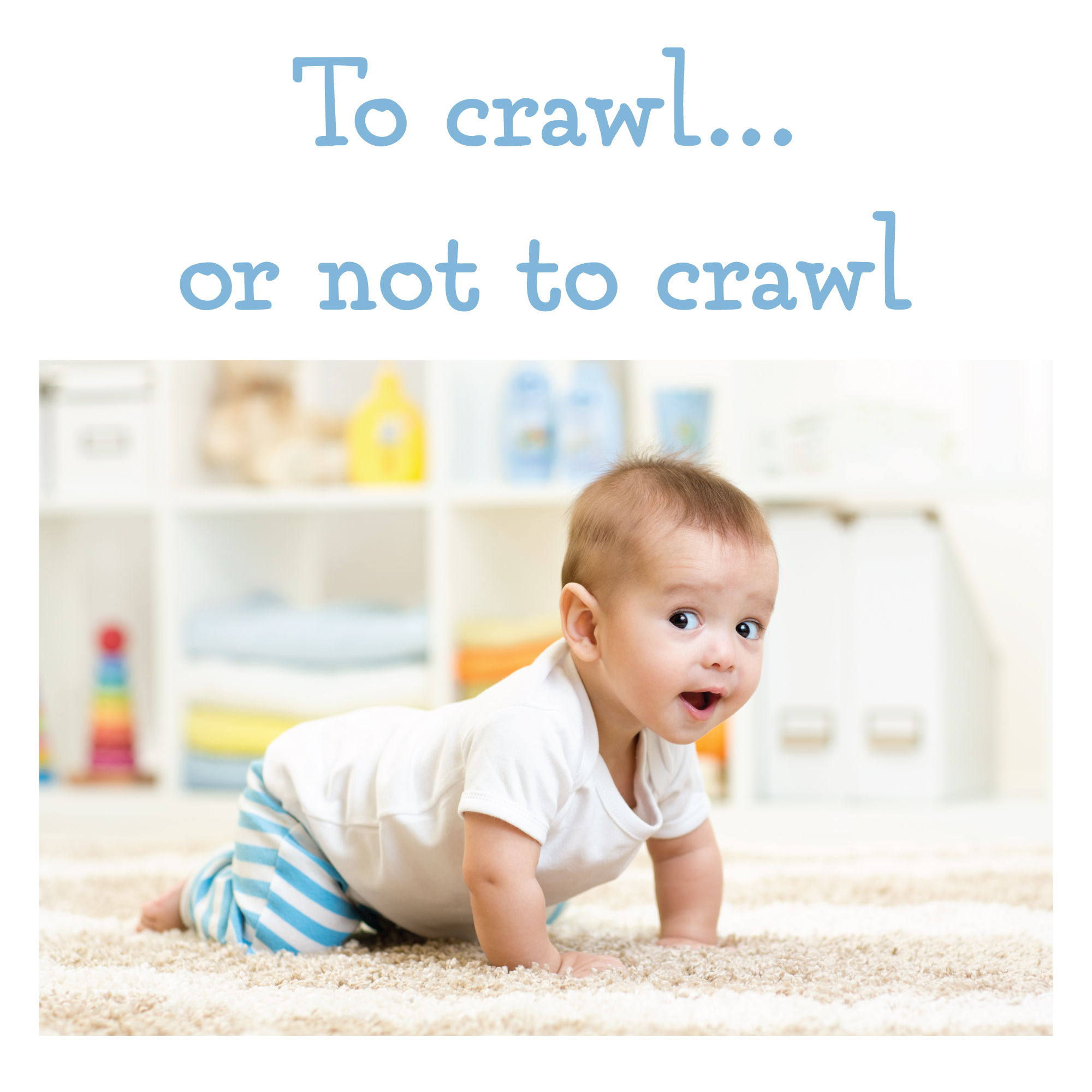About a decade ago there was a lot of talk around the pediatric community that it was not a big deal if a child didn’t crawl. Some pediatricians stated that it wasn’t necessary and there are some children that just progress to walking without crawling at all. To the surprise of MANY pediatric practitioners, in 2022 the CDC actually removed crawling as a milestone.
Some parents are proud when their child doesn’t crawl but rather walked early.
Advice to new parents
I rarely give advice to new parents, but when I do, I say 2 things:
- Do tummy time, and then more tummy time and finally some tummy time.
- Make sure your child crawls.
So why the confusing message? Why do the CDC and some medical professionals believe it’s not a big deal if your child does not crawl while others, like me, believe it is a necessary milestone in motor development?
How does crawling really benefit a child?
Well, from a developmental standpoint, here is what crawling does for your child:
- As crawling is a cross-lateral movement, it strengthens the left-brain right-brain connection by increasing communication between the two sides of the brain which in turn leads to enhancing learning later in development.
- It increases coordination as both sides of the brain are required to process sight, hearing, and movement at the same time.
- Crawling contributes to the development of gross motor skills, fine motor skills, balance, and hand-eye coordination, as well as help the emotional and logical sides of the brain develop for better learning growth.
- The weight-bearing that a child does when crawling develops the arches in the hands and increases shoulder stability which are both critical for the development of fine motor skills, such as handwriting.
- Crawling actually contributes to the development of positive social emotional skills in that it increases a child’s confidence when they go through the stages of conquering a new, difficult and challenging task.
- Finally, crawling builds a foundation for the development of more complex skills that require motor coordination.
What can happen if my child doesn’t crawl?
If they don’t crawl, they can still achieve many wonderful things in life. However, we have discovered that if a child doesn’t crawl, they may be more susceptible to:
- Eye tracking problems (e.g., missing words, letters within words or skipping lines).
- Letter reversals.
- Midline crossing difficulties – using your right hand to color BOTH the left and right side of the paper.
- Fine motor difficulties.
- Reduced concentration.
- Weakness through hips, trunk and shoulders.
- Postural concerns (e.g., difficulty sitting up straight).
- Difficulty standing on one leg.
- Coordination difficulties (e.g., unable to skip).
So, what can you do to encourage crawling?
- Well first, tummy time! You can begin tummy time as early as 1 week of life. And don’t just put your child on the floor and watch them. Get down there with them. Make tummy time fun and engaging so that your child enjoys being on their stomach.
- As your child begins to push up and lift their chest, place objects of interest slightly out of their reach and see how they try to move toward the object.
- Make sure they have enough room to move around. Babies will often pivot or roll first to get moving. Ensure that your child has a safe place to explore.
- Minimize the amount of time your child spends in what we in the child development world so lovingly refer to as ‘containers’ – infant carrier, bouncer, swing, etc. Yes, these different types of equipment can be life savers for times when you need to shower, or cook dinner, but a child should not be in them for long periods of time. When they are, it limits their ability to move their bodies around and explore all the marvelous things that they can do.
Will your child be OK if they don’t crawl…yes. But look at how many developmental stages a child participates in when they DO crawl. How many of us really think about the fact that crawling may impact a child’s handwriting later in life? Or their ability to button a button on their shirt? The simple act of crawling can affect a child’s ability to accomplish these tasks functionally and successfully in the future. 😊

